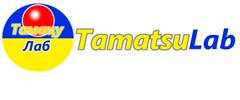

World Region Information --- Guinea Information
Guinea
We are researching local information about Guinea. The Republic of Guinea is a country on the west coast of West Africa. We will feature information that seems good to know when entering Guinea.


World Region Information --- Guinea Information
We are researching local information about Guinea. The Republic of Guinea is a country on the west coast of West Africa. We will feature information that seems good to know when entering Guinea.
It is bordered by Guinea-Bissau to the northwest, Senegal to the north, Mali to the northeast, Cote d'Ivoire to the southeast, and Sierra Leone and Liberia to the south. The west faces the Atlantic Ocean.
Approx. 246,000 km2
Nzerekore(200 000), Kankan(190,000), etc.
Approximately 12.41 million people
Fulani, Mandinka (Mande), Susu (Mande), etc.
French
85% Muslim, 8% Christian, 7% traditional
- Conakry Grand Mosque
- Sante Marie Cathedral
There is an abundance of music and different food cultures depending on the region. It is considered to be a country where soccer is popular.
- Iles de Los
- Mount Nimba Strict Nature Reserve
- voile de la mariee
- Blue Zone de Sonfonia
- Musee National de Guinee
- Soumba
Primary education is compulsory for 6 years, but many children do not attend and the adult literacy rate is about 41%.
- Universite kofi Annan de Guinee
- Bibliotheque de Universite Kofi Annan de Guinee
1891 French Guinea established, declared a separate colony from Senegal
1898 Defeat of resistance to French occupation. France establishes control over Guinea
1908 Become part of the French West African Federation
1952 Ahmed Sek Toure Named General Secretary of Guinea Democratic Party
1958 Guinea becomes independent. Ahmed Sek Toure sworn in as president
1965 President Sek Toure accused France of plotting to deport him. sever ties with france
1984 Sek Toure dies. A bloodless coup by Traore and Conte. Traore becomes Prime Minister, Conte becomes President
1985 Traore demoted, attempted coup d'etat failed
1990 A new constitution is adopted, paving the way for a transition to civilian rule.
1993 First multiparty election
1996 Military rebellion against low wages and poor treatment
2000 Over 1,000 killed in rebel incursions in border areas with Liberia and Sierra Leone
2002 uinea, Sierra Leone, Liberia agree to secure state religion, deal with rebellion
2005 presidential assassination attempt
2006 general strike. Agree on wages and prices of basic goods
2007 general strike. Deaths occur in clashes between demonstrators and police. Declaration of emergency. Violent protests over demands for better wages for the military. Discovery of uranium deposits
2008 President died. Military seizes power in coup
2009 European Union, African Union, and US Sanctions Guinea
2010 Clashes before the presidential runoff. Inauguration of President Conde
2011 Presidential mansion attack
2014 Ebola virus outbreak in southern Guinea. More than 600 dead as it spreads to neighboring Sierra Leone and Liberia
2015 Ebola spreads again. Mass Protests Over Elections
2017 Bauxite mine shuts down due to riots
2021 Military coup, military detains president
It is a presidential republic. The directly elected president is the head of state and head of government. The parliament is unicameral.
- Presidential Palace
- Palais du Peuple
- Cour Supreme de Guinee
$818
The economy is highly dependent on agriculture. The country is rich in mineral and marine resources and has a lot of room for growth.
South Africa, Egypt, Nigeria, Democratic Republic of the Congo, Ethiopia, Kenya, Tanzania, Uganda, Mozambique, Madagascar, Zambia, Malawi, Zimbabwe, Botswana, Namibia, Angola, Cote d'Ivoire, Morocco, Cameroon, Ghana , Burkina Faso, Congo Republic, Gabon, Central African Republic, Chad, Niger, Mali, Mauritania, Algeria, Tunisia, Libya , Sudan, South Sudan, Guinea, Senegal, Eritrea, Djibouti, Somalia, Rwanda, Burundi, Seychelles, Comoros, Mauritius, Eswatini, Lesotho, Equatorial Guinea, Sao Tome and Principe, Benin, Togo, Liberia, Sierra Leone, Guinea Bissau, Gambia, Cape Verde